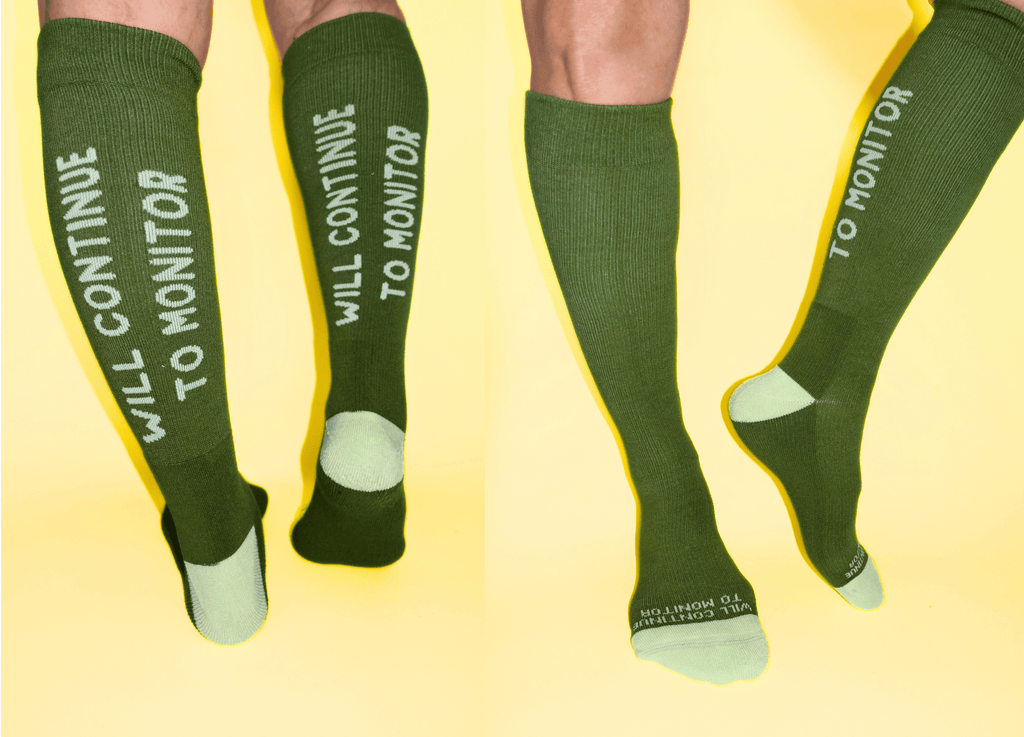Grippy Sock Vacation: Exploring Mental Health with Humor and Understanding

In recent years, the phrase "grippy sock vacation" has emerged as a colloquial, somewhat lighthearted way to discuss a serious topic: mental health interventions and stays in psychiatric facilities. But what does this term really mean, and why has it become popular? This blog dives into the origins, implications, and discussions surrounding "grippy sock vacation," shedding light on its role in today's conversations about mental health.
Unpacking the Term
Let's start at the beginning. The term "grippy sock vacation" likely traces its roots back to social media platforms, where users have found ways to express their experiences with mental health treatment in a humorous yet relatable manner. At its core, "grippy socks" refer to the non-slip socks given to patients in psychiatric units to ensure safety (read more about it here: What Are Psych Ward Socks and Why Do Patients Wear Them? ).
But beyond their practical purpose, these socks have become symbolic of the unique experiences and challenges faced by individuals seeking mental health care. Grippy socks also come in a variety of vibrant colors, adding to the fun and making them more memorable. You can learn more about the significance of these colors here.
From TikTok to Twitter, the term "grippy sock vacation" has gained traction among younger generations as a coded way to discuss mental health treatment experiences. By using humor and irony, individuals can navigate sensitive topics with ease, fostering a sense of community and understanding among peers.
The Light and Dark of Humor in Mental Health
Humor has long been used as a coping mechanism, and discussing mental health issues through lighthearted phrases like "grippy sock vacation" can help destigmatize the topic. By injecting humor into the conversation, individuals can feel more comfortable opening up about their experiences and seeking support without fear of judgment.

While we're all for meme therapy, let's not trip over the fine line between lighthearted jest and outright trivialization. It's essential to recognize the potential risks of trivializing mental health challenges. While humor can be a powerful coping mechanism, it's essential to strike a balance between light-heartedness and sensitivity, ensuring that serious issues are not overlooked or downplayed.
Real Stories Behind the Socks
Grab your tissue box and your blanket because we're delving into how communities, both online and offline, have become the unsung heroes in mental health recovery. Spoiler alert: it involves a lot of virtual group hugs.
Behind the humor lies real, often challenging experiences. Through anonymized stories and firsthand accounts, we shed light on the therapeutic journey and recovery process experienced by individuals who have dubbed their mental health treatment stays as "grippy sock vacations." These stories highlight the resilience and strength of individuals navigating mental health challenges and the importance of seeking support.
“Just got home today from a grippy sock vacation. At least I got to keep the socks lol.”
- Reddit commenter
“How do I tell my psychiatrist I need a grippy sock vacation?”
- Reddit commenter
No one should have to face mental health challenges alone. We emphasize the importance of support systems, both within and outside of psychiatric facilities, in aiding recovery. From peer support groups to online communities, finding connection and understanding can make all the difference on the road to healing.
Navigating Mental Health with Compassion and Understanding
Picture this scenario: you're at a party, and someone starts talking about their mental health struggles. Don't panic! We've got your back with some handy tips on how to navigate these conversations. After all, recognizing when someone might need help is the first step towards offering support. In times of need, it's crucial to know where to turn for help. There are a lot of resources for mental health support, including hotlines, counseling services, and community groups. Whether you're seeking professional guidance or simply need someone to talk to, help is available.
Recognizing when someone might need help is the first step towards offering support. Here is some information on how to identify signs of mental health challenges and approach conversations about mental health with sensitivity and compassion:
Changes in Behavior: Pay attention to significant changes in behavior, such as withdrawal from social activities, mood swings, or increased irritability. These changes may indicate underlying mental health issues.
Physical Symptoms: Mental health challenges can manifest in physical symptoms like headaches, fatigue, or changes in sleep patterns. If someone is experiencing unexplained physical discomfort, it may be linked to their mental well-being.
Expressing Hopelessness or Helplessness: If someone consistently expresses feelings of hopelessness, helplessness, or worthlessness, it could be a sign that they are struggling with their mental health and may need support.
Substance Abuse: Increased use of alcohol or drugs can be a coping mechanism for underlying mental health issues. Keep an eye out for changes in substance use patterns, as they may indicate an underlying problem.
Isolation: Withdrawal from social interactions and a reluctance to engage with others can be indicative of mental health struggles. Reach out to someone who appears isolated and offer your support.
In times of need, it's crucial to know where to turn for help. Here’s a list of some resources for mental health support, including hotlines, counseling services, and community groups. Whether you're seeking professional guidance or simply need someone to talk to, help is available.
National Suicide Prevention Lifeline: A free, confidential 24/7 helpline providing support and crisis intervention for individuals in distress or in need of emotional support. Call 1-800-273-TALK (1-800-273-8255).
Crisis Text Line: A free, 24/7 text-based crisis support service. Text HOME to 741741 to connect with a trained crisis counselor.
SAMHSA National Helpline: The Substance Abuse and Mental Health Services Administration (SAMHSA) offers a confidential, free helpline providing information, support, and referrals for individuals and families facing mental health and substance abuse issues. Call 1-800-662-HELP (1-800-662-4357).
NAMI Helpline: The National Alliance on Mental Illness (NAMI) provides free information, support, and resources for individuals and families affected by mental illness. Call the NAMI HelpLine at 1-800-950-NAMI (1-800-950-6264) or email info@nami.org.
Psychology Today Therapist Directory: An online directory of licensed therapists, psychologists, and counselors offering therapy services. Users can search for providers based on location, specialty, insurance accepted, and more.
Online Therapy Platforms: Platforms like BetterHelp, Talkspace, and Amwell offer online therapy services, allowing individuals to connect with licensed therapists via video, phone, or text messaging.
Local Mental Health Centers: Many communities have mental health centers or clinics that offer counseling services, support groups, and other resources. Check with local hospitals, community health centers, or mental health organizations for information about services in your area.
Peer Support Groups: Organizations like the Depression and Bipolar Support Alliance (DBSA) and Recovery International offer peer-led support groups for individuals living with mental illness. These groups provide a safe space for sharing experiences, coping strategies, and mutual support.
Religious or Spiritual Communities: Some religious or spiritual communities offer pastoral counseling or support groups for individuals facing mental health challenges. Check with local churches, synagogues, mosques, or other religious organizations for information about available resources.
Employee Assistance Programs (EAPs): Many employers offer EAPs as part of their benefits package, providing employees and their families with access to confidential counseling services, referrals, and resources for mental health and other personal issues. Contact your employer's HR department for information about available services.
By recognizing the signs of mental health struggles and approaching conversations with sensitivity and compassion, you can provide valuable support to those in need and help them access the resources and assistance they require.
Grippy Sock Vacation (or not) with Dr. Socko
As we navigate the complexities of mental health, it's essential to find moments of comfort and joy amidst the challenges. That's where Dr. Socko comes in–a hospital sock which has grips on both sides to ensure your safety and is designed to bring a touch of humor and positivity to even the toughest situations.
From vibrant colors to fun designs, our grippy socks are more than just footwear—they're a symbol of resilience and strength. Whether you're embarking on a "grippy sock vacation" or simply looking to add some cheer to your day, our socks are sure to bring a smile to your face.
In the end, it's all about finding the perfect blend of humor and heart when discussing mental health. So go ahead, share a laugh, lend a listening ear, gift Dr. Socko socks and remember, it's okay to talk about mental health challenges—whether you're calling it a "grippy sock vacation" or just another day in the rollercoaster ride of life. Together, we can continue to support each other through our journeys and break down the stigma surrounding mental health.
On that note, if you or someone you know is struggling with mental health challenges, we encourage you to reach out to mental health professionals or utilize the resources provided in this blog. Remember, you're not alone, and help is always available.




